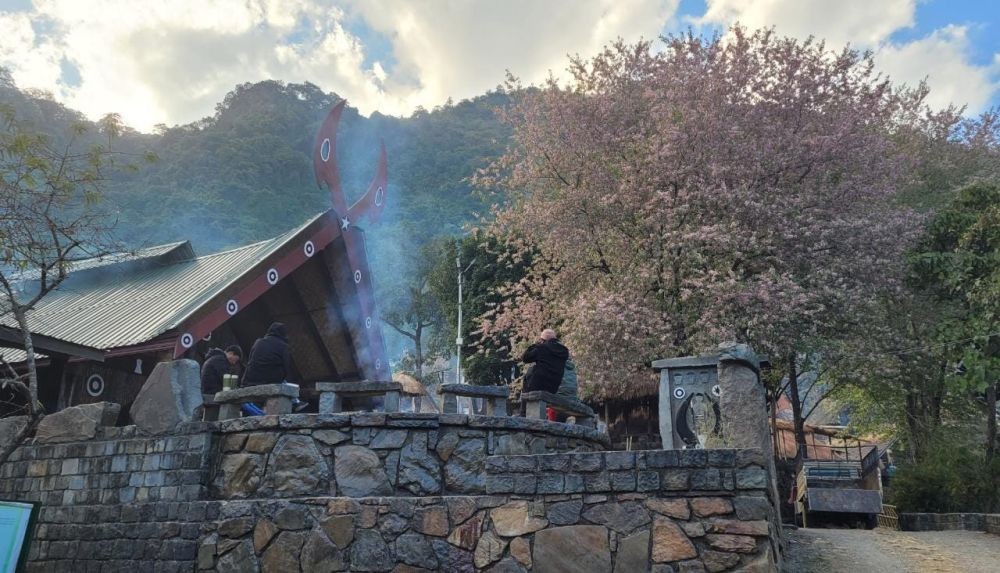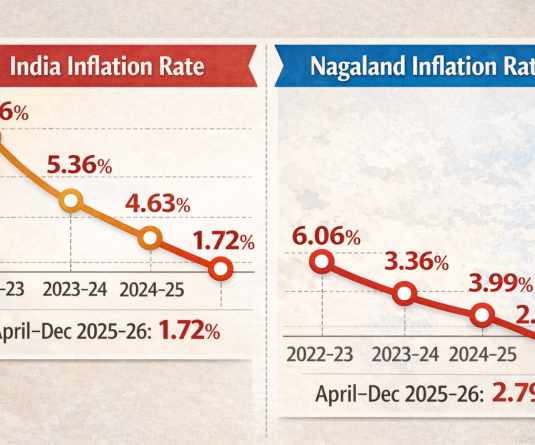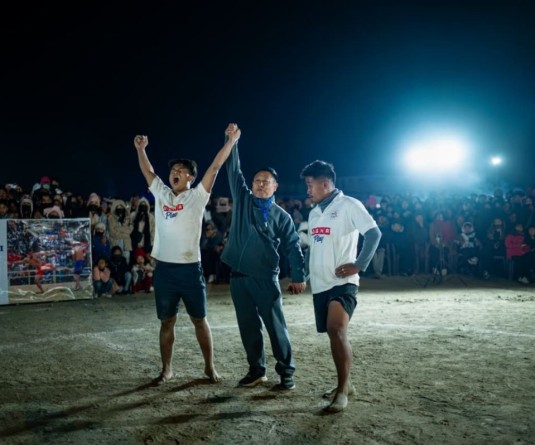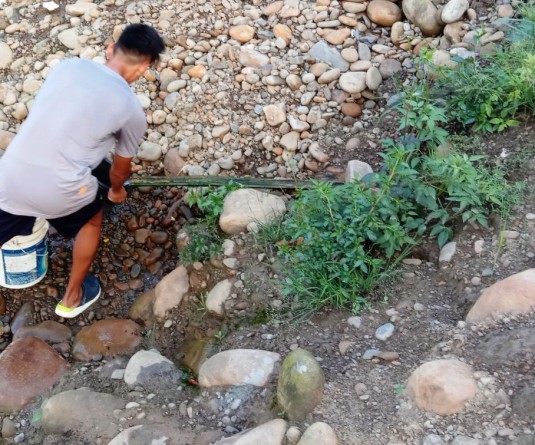
Vishü Rita Krocha
Kohima | December 1
“We have adequate infrastructure and necessary key linkages following the ceasefire”, remarked Richard Belho, Bamboo Architect & Founder of Zynorique Initiatives while pointing out that Nagaland now has “whatever did not seem to have a momentum at that point of time.” He was reflecting on the state’s journey of progress on Nagaland Statehood Day.
He pointed to the emergence of homestays, citing the Southern Angami areas as an example, adding that improved infrastructure has enabled such ventures. He said that people are now looking forward to events like the Hornbill Festival and also pointed to the many villages that now rubber, kiwi, cardamom and kiwi plantations, the harvests of which are going outside the state as well.
In this context, he said the younger generation, instead of only relying on government jobs, need to expand on these activities and start creating a production economy. Asserting the need to take ownership of these new developmental activities, he called for a sense of ownership.
He however pointed out that need to ensure that environmental considerations need to be taken into account in the development process. Human activity, he said should not only be confined to social work and constructing buildings, but to conserve.
Focusing on water conservation, he stated “we need to keep our rivers and drainages clean, and preserve them.” He added that “development should be tandem and the younger generation should take ownership of it”.
Reiterating that the government cannot provide everything all the time, he said: “wherever good roads have reached, people must use that for production economy. “We should not be a negative society, but see the opportunity, make use of it and prosper”, he added.
‘Need for State Policy on Naga indigenous knowledge in modern education system’
As a storehouse of vast indigenous knowledge, Nagaland had a unique method of learning through hands-on practical experiences, practical life and oral tradition. These indigenous practices were influenced by deeply rooted Naga ethos of pragmatism.
Looking back on the journey of education since the formation of the state of Nagaland, Professor at State Council of Educational Research and Training (SCERT), Nagaland, Dr Zavise Rume stated that “Nagas were the practitioners of pragmatism and naturalism.” He meanwhile highlighted that the National Education Policy 2020 emphatically stressed the need for promotion of indigenous and traditional knowledge.
He recalled that in 1878, a school was set up in Molungyimsen village by Mary Mead Clark. Till such time, he said, “there was practically no iota of literacy or education in its ordinary sense of the term”. However, stating that traditionally, Nagas had their own refined system of learning, he reiterated that Nagaland was a storehouse of vast indigenous knowledge.
While the NEP 2020 emphatically stressed the need for promotion of indigenous and traditional knowledge, he said that, “the indigenous practices alone were found to be incapable of meeting the productivity needs of the modern world.” In this context, he asserted that “modern science and technology should be used to improvise Naga indigenous knowledge to maximize productivity of the local economy.”
Pointing out that indigenous knowledge and modern technology must essentially coexist to strengthen one another, he underscored the need for a State Policy on Naga indigenous knowledge in modern education system. “We urgently need to bring back this great Naga tradition to the school system of education to produce well-rounded and productive individuals”, he emphasized.
‘Professional approach required in dealing with education sector’
Dr Zavise Rume observed the state has made significant progress in the education sector. Pointing to the literacy rate in Nagaland at 77.55% as per 2011 census, he illustrated that every village in the state has at least one government school or a private school. He further cited that the state has a Central University and private universities in Nagaland, besides government colleges and private colleges offering general degree courses and professional or technical degree courses.
However, he stressed on the need for professional approach to education. “Till recently, education was handled by any person, thinking that education is a very easy subject matter which can be handled by any lay person,” he said. He said that administration of education was too bureaucratic and qualified educationists hardly have any voice or role in policy decisions.
“Professional approach to dealing with education sector similar to other professions like medical, health, law, engineering etc is the need of the hour”, he said.
Need for a strong State Policy on Education
Emphasizing that Nagaland needs a strong State Government Policy on Education supported by strong political will, Dr Rume also underscored the urgent need for Nagaland’s own Education Policy dealing with recruitment, research, training, school mental health, school counseling etc.
He specifically stated that “the most important policy on education that is urgently required would be the State Policy on Recruitment—the recruitment of all categories of personnel involved in education or working in the field of education.” He explained that “bureaucrats or politicians who are at the power tend to use or misuse recruitment according to their convenience.”
Rume also felt that that “all the new projects on education function parallel to the existing education system, which does not help the existing education system progress in the State.” This, he said is “wasting a huge amount of resources by recruiting personnel to manage a separately parallel functioning of the education projects in the State.” Further pointing out that most of the project personnel managing the projects are from non-education cadre drawn from different departments or agencies, he underlined that “most of the education projects implemented in Nagaland are aimed at school infrastructure development and not the student’s academic development.”
This is why, he highlighted that “the enrolment of the students in government schools is now reduced and the academic progress in terms of annual pass percentage in government schools is very poor.”
Future of Education in Nagaland
With the rapid growth of Online Education, Nagaland state is also witnessing the emergence of online courses, virtual classes, blended mode of learning and open learning. According to Dr Rume, “such modes of education without human heart and values will soon replace the modern education” which will further challenge value system.
“The love and affection for one another will slowly diminish; Isolation of self from the community life or even from family life will slowly emerge; and there will be many mental health professionals and counselors in demand in Nagaland,” he said.
On the future need for professionals who can handle machine learning, AI, Chat GPT, distance learning with the high probability of introduction of computerised technological based vocational skills in Nagaland, he maintained that, “people who are unemployable will be termed as illiterates and unfit in the present world of competition.”
Skill professional manpower, he underscored, “will be the need of the hour in Nagaland” while asserting that 21st century skills will be the minimum pre-requisite qualifications. Stating that multiple skills development courses will be introduced in schools and professionals will be required for content development of the skill based education in schools, colleges and universities”, he also said, “accordingly, we must start educating our people.”





